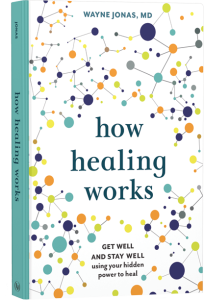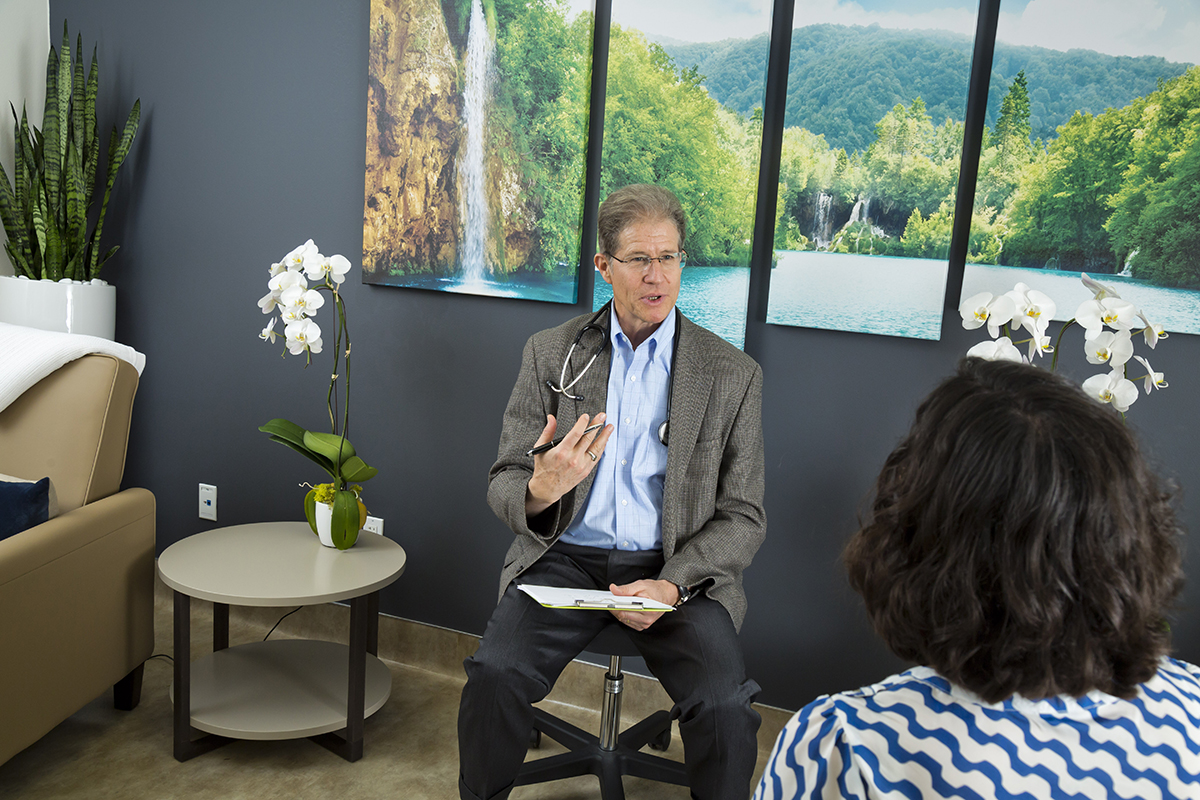As we near the end of March, I think about Match Day, when fourth-year medical graduates all over the country find out where they will spend the next several years. One resident encounter stood out for me as I set to write this letter about what we can all learn (resident or faculty) from our patients when we listen.
“He wants us to prescribe him marijuana.”
The medical resident had blurted it out without context, as if I knew who “he” was. The resident was rotating through a pain clinic at a military hospital where I teach. I did know the patient, Sgt. Johnson (not his real name). It was mentioned in morning report that he was coming into the integrative pain clinic (IPC), a clinic set up for patients with refractory pain designed provide whole person care in an effort to wean them off opioids. The resident had bypassed the customary presentation using the subjective, objective, assessment, plan (SOAP) note approach. He was trying to move things along.
“Well, what is your assessment and plan?” I asked, encouraging the resident to tell me his thinking. Sgt. Johnson was what we called a “difficult case.” He had chronic headaches and back pain from a head injury during his second deployment to Afghanistan, along with depression and post-traumatic stress disorder (PTSD). He was on five different medications and was tapering off oxycontin, an opioid. That is why he was referred to the IPC.
“I think we should switch him to gabapentin from his current sertraline antidepressant,” said the resident, “and maybe consider CBD at night. There is no research showing that marijuana will help his headaches or back pain.” He held up his cell phone, showing me a Google search he had just done. “It just might make him more apathetic. He already spends most of his time at home.”
“That sounds reasonable,” I said. “Let’s go see him. Did he fill out the PHI?”
“I don’t know,” said the resident.
The Personal Healing Inventory (PHI) was a new questionnaire being used only in the IPC, so I didn’t expect the resident to be familiar with it. It is part of the healing-oriented practices and environments (HOPE) note process I teach in that clinic, helping doctors think more about whole person care, an integrative approach to healing. It asks the patient, “What matters most to you in life? What brings you joy?” which is are unusual questions for a medical visit.
Sgt. Johnson had filled it out, answering “my cat and my wife” at the top of the page. I asked him to tell me more about what he had written.
“Well,” he said, “my cat keeps me company during the day and my wife supports me at night when she gets home from work.”
Sgt. Johnson had severe PTSD. He didn’t find individual counseling to be helpful, and group therapy was too stressful for him. Leaving the house was also a challenge, another side effect of his PTSD. He had been on several drugs with marginal benefit.
“I heard that marijuana might help my pain,” he repeated, looking at the resident. I paused and listened to see if there was anything else to come. Sgt. Johnson looked sad. He seemed very lonely.
“I will be happy to discuss that,” I said, “but may I ask another, maybe somewhat difficult question?”
He nodded.
“It is about before you were deployed. About your childhood. How was it growing up for you?” I paused again, and so did he. We waited, and I wondered if he would go there.
“Would be it okay if he left?” he said, gesturing to the resident.
I nodded for the student to go. “We will catch up later. Go ahead and see your next patient.”
Sgt. Johnson proceeded to tell me about a horrific childhood, which included physical and sexual abuse from ages 10 to 17. Then he left home and joined the military. He felt liberated and threw himself into the war. On his second deployment, his Humvee hit a roadside bomb, which resulted in a head injury and chronic headaches. His buddy in the seat next to him was killed.
“I couldn’t go back after that,” he finished. “Couldn’t go anywhere really. I don’t go to counseling and don’t go out with others.”
We both paused to let that sink in. Now I really understood the meaning of “my cat and my wife” written on the PHI. In addition to his other illnesses, Sgt. Johnson was lonely.
“I will certainly look into getting some CBD for you,” I said. “And I think the medication change the resident recommends is a good idea. But will you do something else for me?” He had noticeably relaxed after telling me his story. “I would like you to consider getting a journal and writing in it. Write anything you want, perhaps about your childhood or deployment. What you write is not for anybody else to see. Just you. You can even destroy it later if you want.”
We both paused some more. “I will write you a prescription for CBD, and we will see how it works for you, but you will have to pay for it outside our system as the military does not cover this. If you choose to use it, start with just a little. Come back and see me in a month,” I said and handed him instructions on where he should get it—from a certified pharmacy outside the military.
“Thanks for listening, doc,” he said as he left.
Two months later Sgt. Johnson came back into the IPC to see me. The resident had rotated on to another clinic. As soon as I walked into the room, I noticed Johnson was different. I asked how he was doing.
“Great,” he replied. “The CBD is working well for my headaches. Hardly touch the oxycontin.”
“Any journaling?” I asked, not expecting any.
“Sure,” he said, “I am writing in my journal. It’s hard but I try and do it daily, with my cat on my lap.”
“And?” I probed gently. He seemed hesitant but then began to describe his journaling. He had written about how angry he was with his family for his childhood. About why he left and joined the Army. He had written a note to his buddy, saying how sorry he was for his death and how sorry he was for living. He wasn’t sure why he was living. I listened. Time seemed to slow down, but only ten minutes had passed.
“Wow,” I said, “that is remarkable. Keep it up.” I wrote him a refill for his CBD. “See you in a couple months?” I asked.
“Sure,” he said as he got up to leave. “Oh, and one more thing,” he said as the door opened, “I signed up for a PTSD group next week.”
I smiled. “Glad to hear that,” I said. “Good luck.”
In medicine we like our pills and procedures. Sgt. Johnson might have been helped with medications like ketamine, guided psychedelics, gabapentin, or other anti-depressants. He might have improved with procedures and devices such as cranial magnetic stimulation, biofeedback, or electro-acupuncture. He might have been helped with the CBD. But what he needed was counseling. He needed to work through his guilt and moral injury, perhaps with a chaplain or social worker. He needed to get out into the world and get out of his anger and his pain. He needed to learn how to stop getting stuck in his thoughts and feelings.
But mostly what he needed at the time was listening. First by others to him, then by listening to himself through journaling. No matter what shape his path to healing took, listening was the doorway in.
Later, I saw the resident in passing and told him how well Sgt. Johnson was doing. “Oh good,” he said, “that gabapentin is good stuff. I use it all the time now.”
What the resident didn’t see, however, was the therapeutic benefit in the simple act of listening and being heard. He had been so trained to rely on pills and procedures that the resident missed the true act of healing. As we once again place our residents in health care facilities across the country, let us train them with a whole person approach, one that takes the person’s entire experience into account, to teach them the true acts of healing. The excitement of Match Day will be enhanced when they think not only about the content of what they will be learning but also about the healing processes they can find in their encounters with patients.
If they learn to listen.

Take Your Health Into Your Own Hands
Drawing on 40 years of research and patient care, Dr. Wayne Jonas explains how 80 percent of healing occurs organically and how to activate the healing process.

